The Bronx apartment fire that killed at least 17 people Sunday has also left more than 100 families homeless, in some cases with no clear timeline for a return to their apartments.
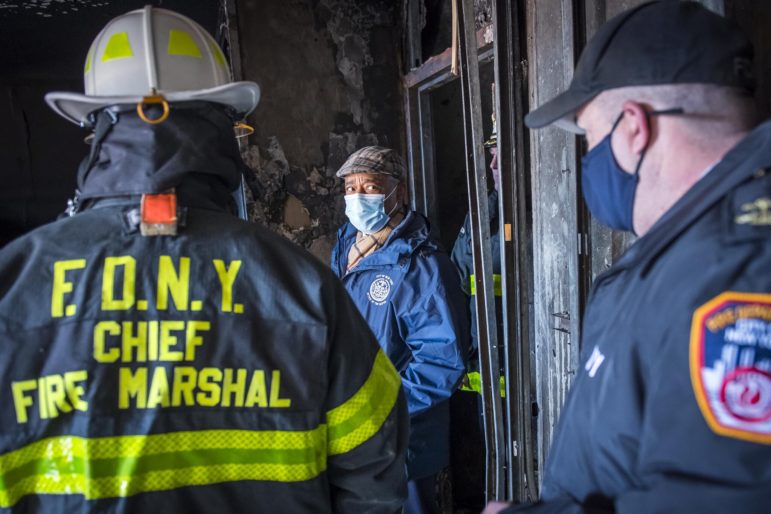
Ed Reed/Mayoral Photography Office.
Mayor Eric Adams and FNDY staff at the scene of the fatal fire on Monday.The Bronx building fire that killed at least 17 people Sunday has also left more than 100 families homeless, in some cases with no clear timeline for a return to their apartments. The displaced tenants, many of them immigrants from West Africa, may face a hard road to housing without intensive government intervention, advocates and attorneys say.
It can take months, or even years, for families affected by fire to return to their damaged homes. And finding another affordable unit elsewhere is no easy task in New York City’s tight low-income housing market.
“It could be years with the current housing inventory we have in the city,” said Rue Parkin, the executive director of disaster relief organization helpNYC. For undocumented immigrant residents, it can be even harder, Parkin added.
In this case, however, housing advocates say the city and state have significant leverage to pressure the property owners to move the tenants into new housing until their apartments are restored. A spokesperson for the building’s owners told City Limits they will connect tenants who can’t return to their apartments with new units elsewhere.
The building, known as Twin Parks North West, is a state-supervised Mitchell Lama site that belongs to a network of investors including LIHC Investment Group, Belveron Partners and Camber Property Group. The firms have strong political ties: Camber’s CEO Rick Gropper recently served on Mayor Eric Adams’ transition team.
The collection of owners, organized as Bronx Park Phase III Preservation LLC, bought the high-rise in 2020 and entered into an agreement with the New York State Housing Finance Agency of the state’s Division of Homes and Community Renewal (DHCR) to provide affordable housing in exchange for hefty low-income tax credits and low-cost financing. In recent years, Camber and Gropper have purchased several Section 8 properties and now own at more than 120 sites, mostly in The Bronx and Brooklyn, according to building records.
Since their business depends on government subsidies and agreements, the developers have extra incentive to do right by displaced tenants, said Matthew Tropp, the head of Legal Aid’s Bronx housing practice.
“The state is involved with the developer on many different projects and part of that oversight is making sure that people are getting safe and affordable housing,” Tropp said. “If they’re not doing that, it can impact future deals.”
How Camber and its associates respond following the fire at their building on East 181st Street could impact tenants in disasters down the road, said Housing Justice for All organizer Cea Weaver. In addition to its privately owned affordable housing sites, Camber has taken over private management of some NYCHA complexes.
“Getting clarity on how they should behave in this moment sets precedent for future cases,” Weaver said.
Property owners, particularly landlords without the same public agreements, may flout accountability and leave renters stranded. The aftermath of a devastating April 2021 Jackson Heights fire is just one example.
Nine months after their apartments burned, more than 200 families are still banished from the building. Some have found new apartments, while others continue to stay in hotels and city-funded emergency shelters.
Andrew Sokolof Diaz, a former resident of the Jackson Heights building who helped organize his neighbors, said city and state officials must hold the Twin Parks landlord accountable and work with each family to create a specific, long-term housing plan close to their community.
“I’m hopeful they will be helped the way they deserve to be,” Sokolof Diaz said. “This is their enclave and they need to be as close as possible to home. The displacement effect is retraumatizing.”
The Twin Parks complex represents a dwindling commodity in New York City: low-cost housing.
Nearly all of the apartments at 333 East 181st St. are reserved for households earning less than 60 percent of area median income (no more than $64,440 for a family of three), according to a 2013 purchase agreement with DHCR.
More than 75 of the 120 apartments are attached to project-based Section 8 subsidies, said Lt. Gov. Brian Benjamin at a press briefing Monday. That means the federal government covers the bulk of the rent for tenants, who pay no more than 30 percent of their income for the remainder. But unlike “tenant-based” Section 8 vouchers, residents cannot necessarily transport those subsidies to a new apartment.
Benjamin, however, said all tenants with Section 8 subsidies whose homes are uninhabitable will be able to transfer their subsidies to other apartments.
“We will be working with the developers and those on the ground to make sure that everyone has adequate housing as soon as possible if they cannot come back to the building,” he added.
Officials from DHCR and the development firm say they are working to issue tenant-based housing vouchers for residents who cannot return to their homes. Those subsidies will allow them to transfer their Section 8 to other locations at the same rental assistance level, but finding a landlord willing to accept the subsidy can be a challenge.
Bronx Park Phase III Preservation LLC spokesperson Kelly Magee said the property owners will also move tenants into units in other buildings they own.
“Anyone who needs longer-term housing due to the fire will be accommodated,” Magee said.
Some tenants whose units were not damaged may be able to return to their homes later this week, said Office of Emergency Management (OEM) Commissioner Christina Farrell Monday.
Others are facing much harder roads to housing. Survivors remain in hospitals, including some in critical condition, while others have moved in with families and friends, Farrell said. Residents can seek additional services at an OEM staging area located at Monroe College.
The Red Cross has provided hotel rooms for 21 households, made up of 74 people, for up to two weeks, according to New York City’s Department of Housing Preservation and Development (HPD). The property owner has put up 41 other households, comprised of 148 people, in additional hotels, HPD said. Survivors so far had all been placed at sites within The Bronx, Farrell said Monday.
HPD also operates an emergency shelter system for New Yorkers displaced by disasters like the deadly fire, or last year’s Hurricane Ida-related flooding. Yet, those facilities are often located far from occupants’ home neighborhoods and the conditions face criticism.
Fire officials blame Sunday’s blaze on a malfunctioning space heater that had been running in one of the building’s third-floor apartments. Tenants fled the unit when the fire broke out, but their front door did not close behind them, Mayor Eric Adams said Monday. The open doorway fanned the flames and sent smoke swirling throughout the high-rise. The fire was the city’s deadliest in more than 30 years.
“This is an unspeakable tragedy,” Adams said Monday, adding that President Joe Biden had offered to provide federal support. “The Bronx and New York City is representative of the cultures and ethnicities across the globe.”
City officials are investigating why the door did not close despite a 2018 law mandating that hallway and apartment doors shut automatically to prevent fire. HPD cited the previous building owner, Rubin Schron, for the malfunctioning doors on multiple occasions, the New York Post reported.
An online fundraiser created by the nonprofit Gambian Youth Organization raised more than $700,000 for the displaced families by 10 a.m. Tuesday—a striking total on its surface, but a sum that amounts to less than $6,000 per household in the 120-unit complex.
Gov. Kathy Hochul on Sunday also pledged to create a victims’ compensation fund as part of the state’s budget.
“We will not abandon you. We are here for you,” Hochul said. “There’ll be money to help them find new housing, for burial costs, for whatever they need.”
Since the fire, New Yorkers have rallied in support of the victims and their families. The collaboration among city, state and federal leaders has also fostered a sense of togetherness.
But while those types of one-off funding arrangements can be crucial for individual families, they do little to solve a larger problem facing New York City, said Hilary Botein, an associate dean at Baruch College’s Marxe School of Public and International Affairs.
“We don’t have enough affordable housing and this is not going to solve the structural problem,” Botein said.



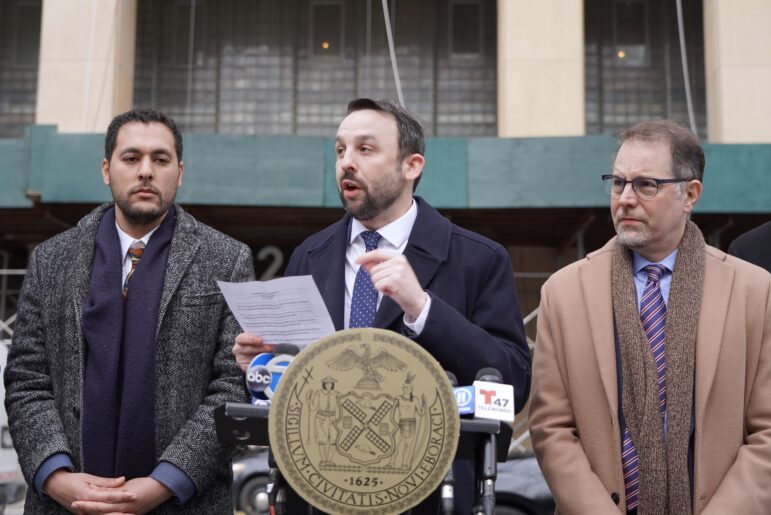
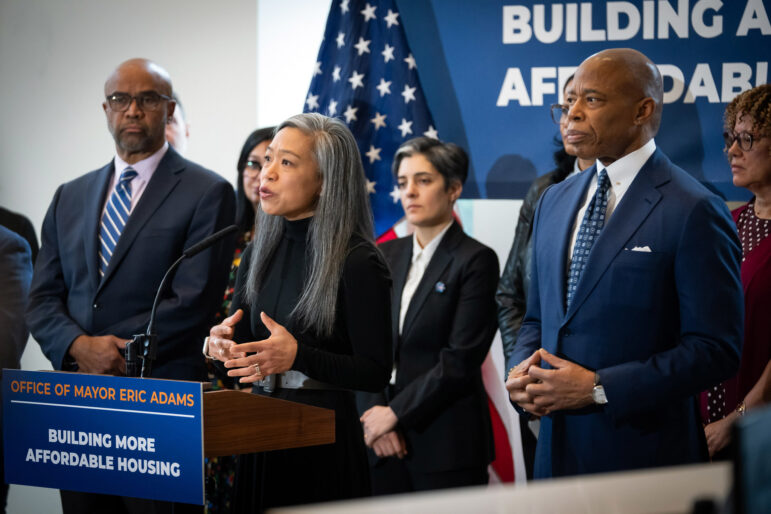
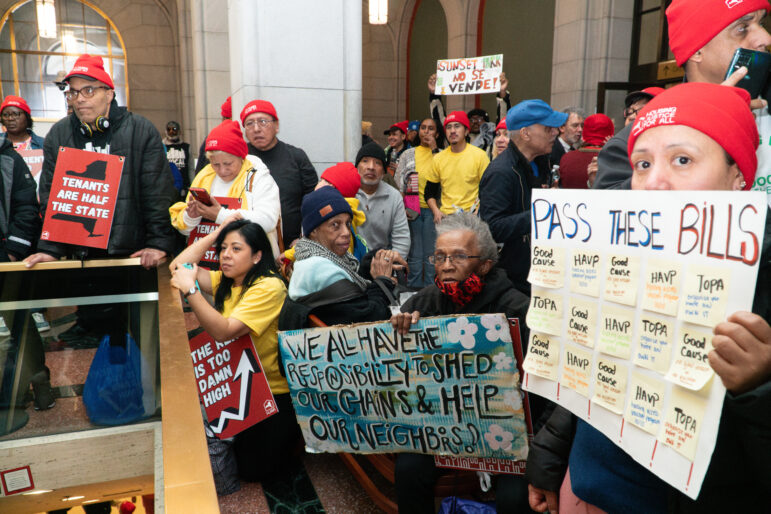
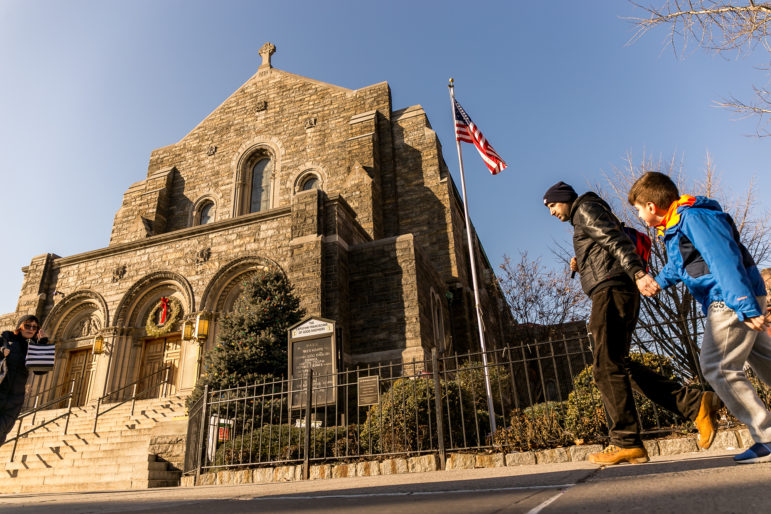



4 thoughts on “What’s Ahead for Tenants Displaced by Deadly Bronx Fire?”
I believe that the US Department of Housing and Urban Development (HUD) has to take an active role here. Why? There are federal taxpayer-funded HUD dollars and HUD housing standards involved here.
In addition to the positive public statements of support for the families, I believe that Senator Schumer and Senator Gillibrand and Congressman Torres need to call on HUD to take specific actions ASAP and with a strong sense of urgency, since at least 17 lives were lost, in affordable housing – a precious thing that is as hard-to-find in this city and country as it is essential.
These should be HUD’s actions, I believe:
1) Take possession of the property immediately and place it in receivership.
2) Let a responsible affordable housing management organization take over the management, using HUD funds to repair and renovate the housing, so the tenants can return to their homes, and maintain it according to HUD standards.
3) Investigate the conditions of the housing complex and use the power of the Federal government to sanction the investment group over those conditions.
4) Investigate the conditions of all this investment group’s other properties in NYC and use regulatory power to ensure the other properties are meeting the highest standards.
The reason this should be such a big deal is that this kind of investment group is common in the city and in the US. Maine-based LIHC, a key partner, is listed as #18 among the top 50 affordable housing ownership groups in the US, according to the Affordable Housing Finance website. https://www.housingfinance.com/management-operations/top-50-affordable-housing-owners-of-2020_o
LIHC has over 15 million units of housing under its control throughout the US.
This is the larger affordable housing picture in the US, in addition to the very important question of the need for capital budgets to construct and maintain new affordable housing.
These kinds of groups should be made to see that there are consequences for poor and dangerous management while taking tax credits and housing subsidies.
The New York City and New York State Mitchell-Lama programs have been gutted by letting the long-term contracts with the original building developers expire and changing the populations from middle income renters and coop owners to very low income people who require deep subsidy. Under project based Section 8 the current owners get to charge full market rent to the government and the tenants pay 30% of their income toward that full rent. As a result, you get all the right conditions for the tragedy at Twin Parks North West. Poor people who rely on a housing subsidy that is only really benefiting investors who reap guaranteed profits without being required to maintain the aging buildings adequately. If poor people complain, they get evicted and new “less vocal” poor people replace them. Bring back the original Mitchell Lama program, where housing quality standards were enforced.
Most of the WORLD is POOR! That is the NORM. What do you have to say about the RICH landlords? You clearly amitted they have culpability in not CARING (you know those conditions), that the ‘poor’ cultivate and they (rich landlords) take advantage of. I will agree there is negligence on the part of tenant(s) of all racial and economic makeup, however, to blame the fault of the fire for being a ‘POOR’ thing is rather callous! And what makes you say that because of being ‘poor’ they will not stand up for better housing…it seems to me those are the ones that are most vocal. Remember you are poor compared to someone way ‘RICHER’ than you! And we all rely on subsidies of one form or another…look up what a ‘subsidy’ actually denotes. How about bringing back ‘people’ who have integrity and honesty…how about you?!
Integrity?
Honesty?
Most ALL landlords just took a “2 years of NO RENT kick” in Housing Court Judges are hearing JUST “recent arrears” and NOT the 2 years of back rent due to the “Rent Moratorium”.
The 2 years of back rent will NEVER be seen by landlords coast to coast.
Banks want mortgage payments, insurance companies want premiums, taxes, utilities, etc.
It is not easy to be a landlord.